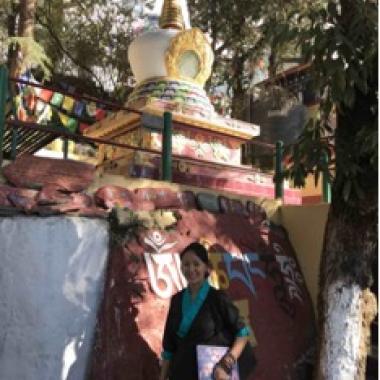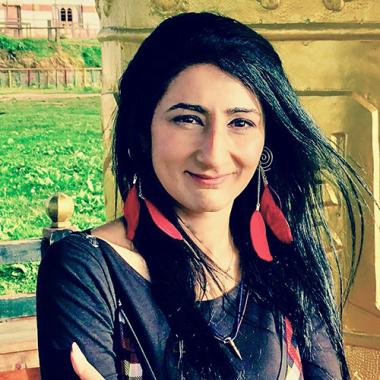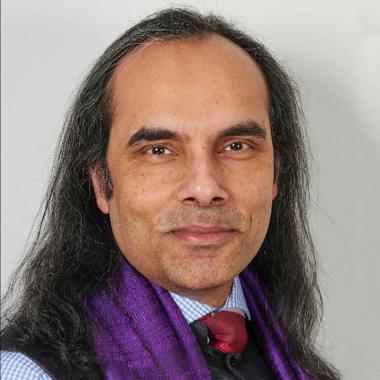
About this Event
The Centre for the Study of Democracy (CSD) is based in the School of Social Sciences at the University of Westminster. The Centre undertakes research across a range of critical social and political challenges, promoting an interdisciplinary environment. The CSD has a research theme on “postcolonial politics, nationalism, small states, Asian geopolitics” and there is an explicit focus on engagement with local and global communities and impacting upon public debates around subjects of rights, identities, and justice.
This event is organised with Tibet Watch, a UK registered charity that works to promote the human rights of the Tibetan people through monitoring, research and advocacy. It is an indispensable source of reliable information and expert analysis from Tibet, and is relied upon by Tibet and China watchers worldwide and policy makers world-wide.
The conversation deals with a topic that is integral to the complex geopolitics of Asia, affects the present and the future of China-Tibet relations, challenges the perceived divides between religion and politics, and brings together prominent experts to discuss some of the most important dynamics involved. Politics being played by Communist Party-ruled China over the religious institution of reincarnation in Tibet Buddhism in general and the future of the global icon Dalai Lama in particular goes beyond China-Tibet relations.
Event schedule
- 18.00: Door Opens
- 18.15: Welcome by Professor Nitasha Kaul, Director, Centre for the Study of Democracy
- 18.20: Panel discussion with Telo Tulku Rinpoche, Tenzin Choekyi, and Kate Saunders, chaired by Professor Dibyesh Anand
- 19.40: Vote of thanks by Joe Hipgrave, Chair of Trustees at Tibet Watch
- 19.45: Concluding Remarks by Professor Nitasha Kaul
- 19.50: Networking Reception
- 20.30: Programme Ends
Location
Fyvie Hall, University of Westminster, 309 Regent Street W1B 2HW

Telo Tulku Rinpoche
Telo Tulku Rinpoche is the Representative of His Holiness the Dalai Lama to Russia, Mongolia, Armenia, Belarus, Kazakhstan, Kyrgyzstan, and Tajikistan. He was based at the Tibet Culture & Information Centre (Office of Tibet) in Moscow, Russia until 2023, when he became the first religious leader in the country who publicly condemned Moscow's invasion of Ukraine.
As a result he was forced to leave Russia for Mongolia, where he is helping Kalmyks who left Russia after Moscow launched its war against Ukraine in February 2022. Previously, Telo Tulku Rinpoche was elected in 1992 as the head lama of Kalmykia, one of the three Buddhist regions in Russia. He has supervised and helped to rebuild and construct over 37 Buddhist temples and 120 stupas, including the main temple in the capital city, the Golden Abode of Buddha Shakyamuni, which is the biggest Buddhist temple in Russia and European territory.
Telo Rinpoche’s efforts are focused on preserving the Kalmyk Buddhist culture along with basic secular human ethics like compassion, love, kindness and non-violence. In Mongolia, Telo Tulku Rinpoche established the Diluv Hutught Foundation in Mongolia in memory of his previous reincarnation. This involves translation of numerous books on Tibetan Buddhism, promoting documentaries about the Dalai Lama in mainstream Mongolian culture and concepts of secular ethnics through events and courses.
Telo Tulku Rinpoche regularly gives teachings and talks for the general public and young people in Kalmykia, Moscow, Mongolia, India, USA and other countries. He has published multiple articles in various academic journals, and pioneered activities involving the participation of scholars and monks from Russia, Mongolia, India, USA, Thailand, Sri Lanka and elsewhere.

Tenzin Choekyi
Tenzin Choekyi is a Senior Researcher at Tibet Watch. She provides analysis of the situation inside Tibet to parliamentarians, journalists, and campaigners.
A trilingual interpreter with a specialisation in environmental science, she has previously served as a translator for Tibetan nuns and asylum seekers, and worked with the International Campaign for Tibet on UNESCO’s controversial nomination of the vast Tibetan nomadic land of Tsongon-Achengangyab. Choekyi has also worked in access to information, telecommunication, and employment in grassroots charities in Paris.

Kate Saunders
Kate Saunders is a writer and author who has specialized in Tibet for more than 20 years, leading fieldwork in Asia and mentoring researchers and open-source monitors; briefing Parliamentarians, government ministries and engaging in U.N. advocacy in Geneva; leading teams and managing media/public relations for high-profile events for instance visits by the Dalai Lama to international capitals.
As the former head of Research for the International Campaign for Tibet, Kate managed a field operation of Tibetan researchers, interviewing Tibetan sources and writing analyses on the situation in Tibet. She has produced numerous reports on the situation in Tibet and a book on the Chinese laogai system ‘Eighteen Layers of Hell: Stories from the Chinese Gulag’.
Her articles have been published in newspapers and magazines worldwide including The Guardian, The Times, Washington Post, Times of India. Kate is currently working on a report investigating the geopolitical issues of reincarnation and leading a research project, Turquoise Roof, combining OSINT and digital forensics with Tibetan research expertise.

Nitasha Kaul
Professor Nitasha Kaul is the Director of the Centre for the Study of Democracy and a Professor of Politics, International Relations, and Critical Interdisciplinary Studies at the University of Westminster. Over the last two decades, she has published on themes relating to democracy, political economy, technology, identity, the rise of right-wing nationalism, feminist and postcolonial critiques, small states in geopolitics, Bhutan, India and Kashmir.
Her books include Imagining Economics Otherwise (Routledge, 2007), Future Tense (Harper Collins India, 2020), and Can You Hear Kashmiri Women Speak? (co-edited; Kali for Women Press, 2020), and Man-Asian Literary Prize short-listed Residue (Rainlight, 2014), which was the first novel in English by a Kashmiri woman.
She is on Twitter @NitashaKaul, and you can find her published, spoken, and media work here.

Professor Dibyesh Anand (Chair)
A professor of International Relations at the University of Westminster, he is the author of monographs Geopolitical Exotica: Tibet in Western Imagination and Hindu Nationalism in India and the Politics of Fear
Professor Dibyesh Anand has researched, spoken about, and published extensively on, varied topics including postcolonial politics and international relations, Tibet, Reincarnation, China-India border dispute, Hindu nationalism, Islamophobia, and colonial practices of postcolonial states.
He is on Twitter @dibyeshanand


